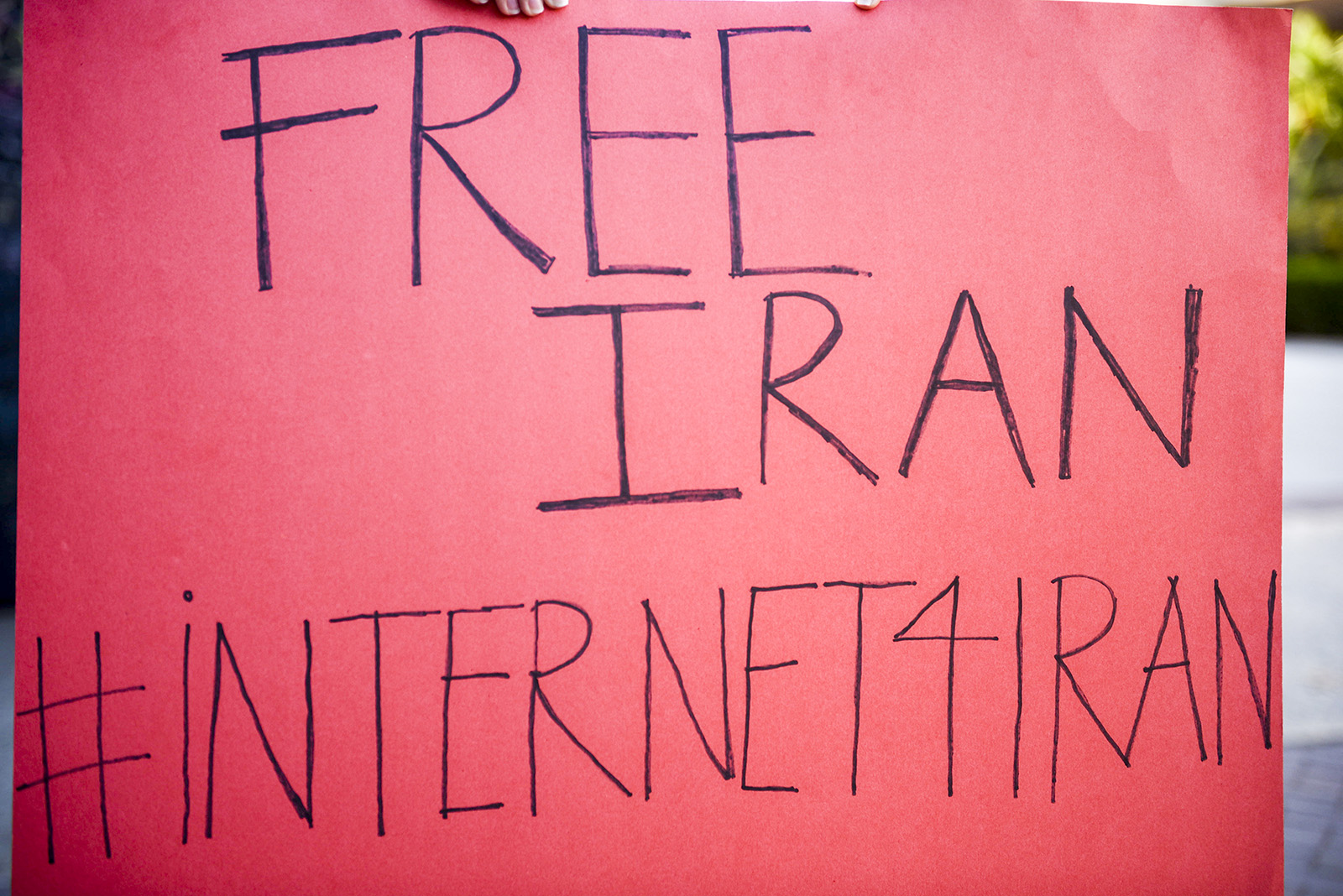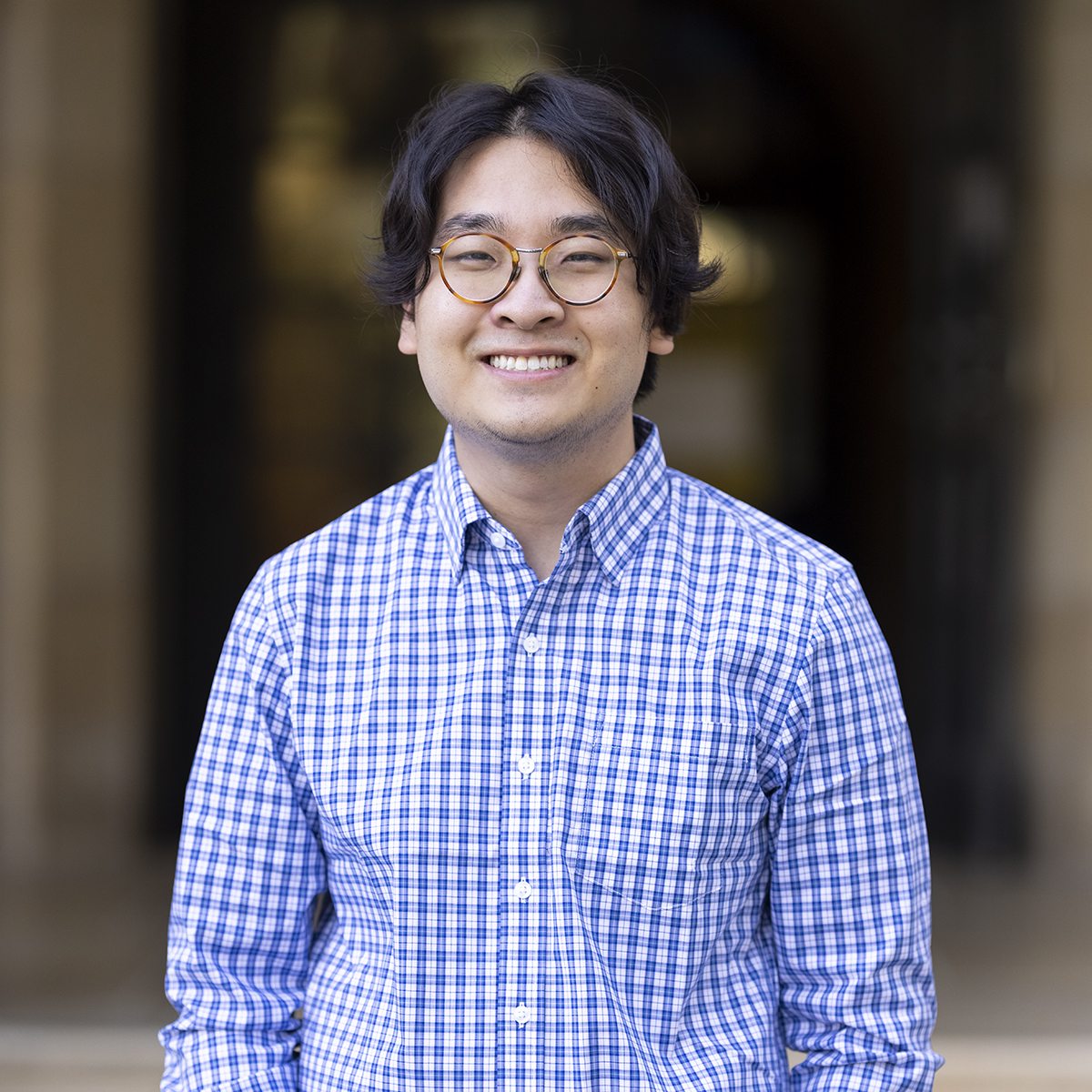Campus protest sheds light on Iran’s internet blackout, impact on students

Several students gathered Friday in Bruin Plaza to raise awareness for an internet shutdown in Iran and the effects it might have on prospective students. Internet use in Iran is currently being restored in the country. (Niveda Tennety/Assistant Photo editor)
Several students demonstrated Friday in Bruin Plaza to raise awareness about a government-initiated internet blackout in Iran and its effect on students.
The protest, organized by a small group of Iranian and Iranian American students, was meant to criticize restrictions imposed on Iranian citizens by their government, including a weeklong internet blackout that authorities initiated Nov. 16.
The Iranian government began lifting the blackout Thursday, according to Reuters. Landline services were fully restored by Sunday, but mobile internet remains less accessible, according to the internet advocacy group NetBlocks.
The Iranian government initiated the blackout in response to violent civilian protests against the government’s 50% hike in fuel prices a day before the blackout. Reports indicate that over 100 demonstrators have been killed, while some unverified reports peg the death toll at up to 200, according to Amnesty International.
The blackout, which cut up to 95% of all internet traffic in Iran, had global consequences for students and scholars, protesting or not. Talla Khelghati, a third-year economics student, said the blackout prevented prospective students in Iran from submitting applications to UCLA, most of which are due between Nov. 30 and Dec. 1.
“A lot of the Iranian grad students are trying to apply to grad schools in the U.S.,” Khelghati said as Iran started restoring internet service. “Deadlines are coming up within the next few weeks and they can’t send in their applications because they don’t have access to the internet.”
The National Iranian American Council, a nonprofit organization representing Iranian Americans, urged universities to extend application deadlines, after receiving reports that college tests were canceled due to the recent unrest in the region, according to an NIAC press release.
“Such circumstances render it impossible for Iranian nationals to take standardized tests, … secure transcripts and send in application materials in advance of forthcoming deadlines,” Jamal Abdi, president of NIAC, wrote in the press release.
Undergraduate applicants affected by the blackout can request an extension by phone or email once services are restored, Claire Doan, a spokesperson for the University of California Office of the President, wrote in an emailed statement. UCLA has asked graduate departments to extend deadlines for affected applicants, said Alison Hewitt, a university spokesperson.
Hours before the protest by the Bruin Bear, the United States imposed new sanctions on Mohammad Javad Azari Jahromi, Iran’s telecommunications minister, for the internet blackout.
“Iran’s leaders know that a free and open internet exposes their illegitimacy, so they seek to censor internet access to quell anti-regime protests,” Treasury Secretary Steven Mnuchin said in a press release.
Iran has previously blocked Telegram, a popular internet-based messaging app used by more than half of Iran’s population, and cut access to the internet in parts of the country to stymie protesters in early 2018. In response, multiple human rights experts from the United Nations condemned all communication blackouts as a violation of fundamental human rights.
Atrin Ardjmand, a fourth-year psychology student, said despite her being a second-generation Iranian American, the blackout in Iran has affected her family directly.
“I have family members who are sick (and) I have family members who … you just want to keep in contact (with),” Ardjmand said. “Our main primary way of speaking to them is through Telegram and WhatsApp and not being able to contact them has limited that.”
Although criticizing the regime in Tehran may endanger her family in Iran, Ardjmand said the benefits far outweigh the risks.
“They have no voice,” Ardjmand said. “We’re out here protesting and trying to have voices heard because if we don’t, and they can’t, then nothing will be able to change.”
The Iranian government already employs heavy filters to censor the public’s access to the internet. The tactic is often compared to China’s censors, sometimes called the “Great Firewall of China.” Many Iranians use virtual private networks, or VPNs, to tunnel an encrypted connection through the censors to access popular internet services like Instagram.
In 2018, Iranian authorities deployed the National Information Network, a government-controlled intranet isolated from the rest of the internet, in an effort to further restrict the public’s access to information, similar to North Korea’s national intranet.
“I wouldn’t personally compare (Iran) to (China or North Korea) because it’s my home country … (but) you could draw the comparison,” Ardjmand said. “It’s going lower and lower.”
Undergraduate applicants affected by the blackout can apply for an extension by emailing [email protected] or calling (925) 298-6856. Affected graduate applicants can call their prospective departments for additional time.



